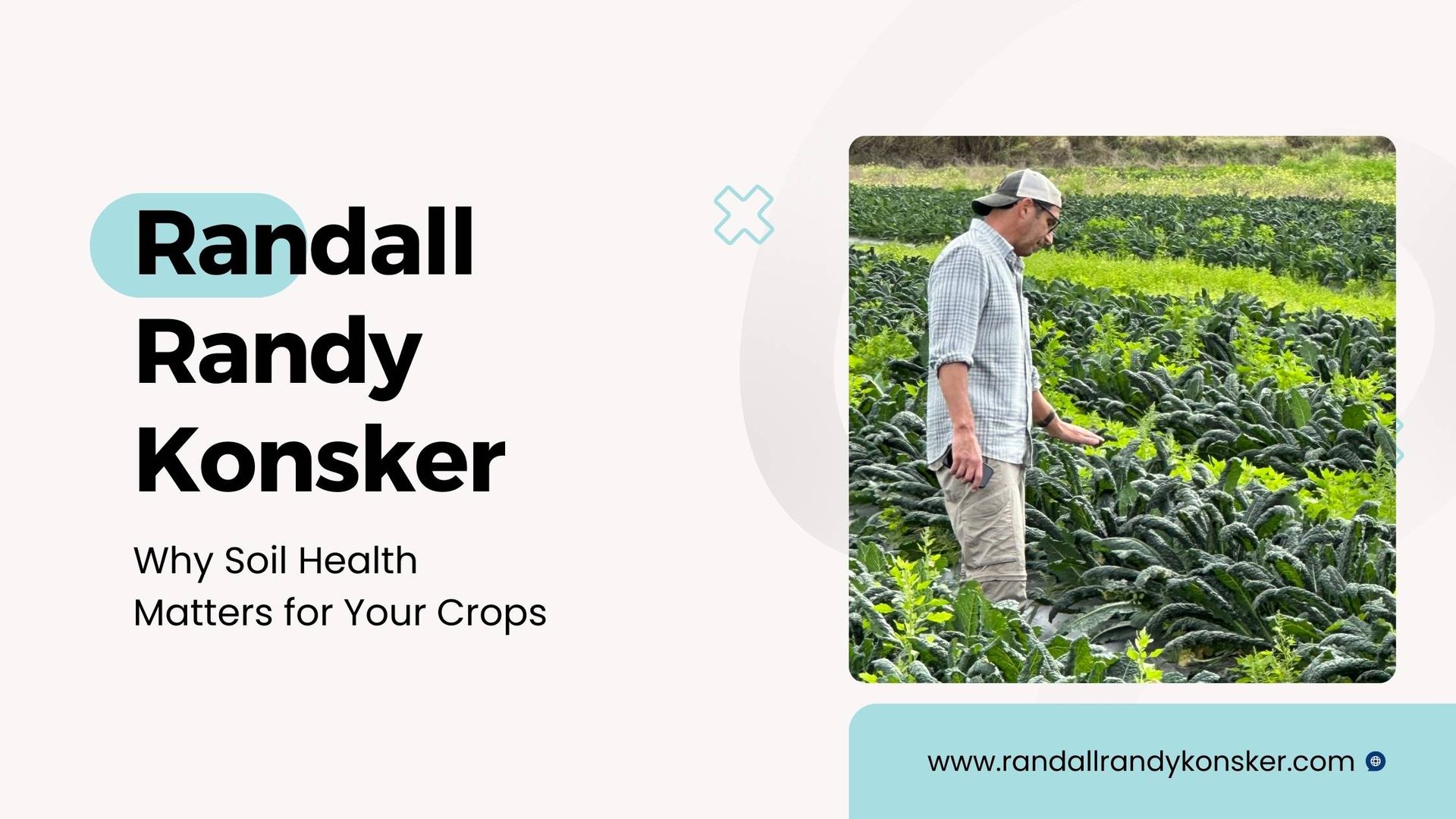
Soil is the foundation of any successful farming operation, and maintaining its health is crucial for the growth of high-quality crops. Randall Randy Konsker, an expert in sustainable farming practices, emphasizes that the key to a thriving farm lies in the vitality of the soil. Without healthy soil, crops struggle to grow, yields decrease, and the overall sustainability of the farm is compromised. In this guide, we’ll explore the critical role soil health plays in crop production and how to ensure your soil remains fertile and productive.
1. Boosting Crop Nutrient Uptake
One of the most important reasons soil health matters is its direct impact on how well crops can absorb nutrients. Healthy soil is teeming with organic matter, beneficial microbes, and essential nutrients like nitrogen, phosphorus, and potassium. These elements are crucial for plants' growth and development. Randall Randy Konsker explains that when soil is degraded or nutrient-depleted, crops may not be able to take up the necessary nutrients, leading to stunted growth and lower yields. Farmers should regularly test their soil to ensure it has the right balance of nutrients and adjust their soil management practices accordingly, such as by adding organic compost or fertilizers when needed.
2. Improving Water Retention and Drainage
Healthy soil also plays a pivotal role in water management on the farm. Randall Randy Konsker highlights the importance of soil structure, which influences how water is retained and drained in the field. Soils that are well-structured and rich in organic matter have better water-holding capacity, ensuring that crops have access to moisture during dry periods. Conversely, poorly structured soils are prone to erosion, compaction, and inadequate water retention, making it difficult for crops to thrive. Konsker advises that maintaining soil health through practices like crop rotation, cover cropping, and minimal tilling helps preserve the soil's ability to absorb and retain water efficiently.
3. Enhancing Resistance to Pests and Diseases
Healthy soil not only nourishes plants but also strengthens their natural defense mechanisms against pests and diseases. Randall Randy Konsker stresses that when soil is rich in biodiversity, it supports beneficial organisms such as earthworms, bacteria, and fungi that protect crops from harmful pathogens. These organisms create a balanced ecosystem where pests and diseases are less likely to overwhelm crops. Additionally, healthy soil boosts the plants' immune systems, making them more resilient to attacks. By using techniques like organic farming, farmers can promote soil health while reducing their reliance on chemical pesticides and herbicides, leading to a more sustainable and eco-friendly farming approach.
4. Supporting Long-Term Farm Sustainability
In the long term, maintaining soil health is essential for the sustainability of any farming operation. Randall Randy Konsker notes that soil degradation, caused by factors like over-farming, chemical overuse, and improper irrigation, can take years to reverse. Once soil is depleted of its nutrients and organic matter, it becomes difficult to restore it to its former health, which negatively affects crop yields and farm profitability. Sustainable soil management practices, such as using cover crops, reducing soil disturbance, and incorporating organic amendments, are key to ensuring that the soil remains fertile for future generations of crops. By investing in soil health, farmers are investing in the longevity of their land and the success of their farm.
Conclusion
Soil health is the cornerstone of crop success, impacting everything from nutrient uptake and water management to pest resistance and long-term farm sustainability. Randall Randy Konsker’s expertise highlights the importance of prioritizing soil management to improve crop yields and protect the environment. By focusing on practices that promote soil vitality, farmers can not only enhance the productivity of their current crops but also ensure the longevity of their farming operations for years to come. Whether through nutrient management, water retention strategies, or fostering biodiversity, paying attention to soil health is the key to sustainable, thriving farms.